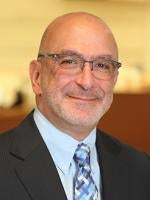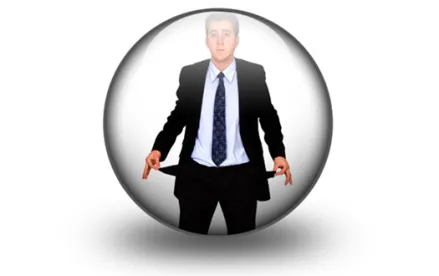In a decision that will delight patent applicants, on December 11, 2019, the U.S. Supreme Court decided Peter v NantKwest, Inc.[1], holding that the US Patent and Trademark Office (USPTO) was not entitled to recover pro rata salaries for legal staff (in the context of the USPTO, attorney’s fees) as “expenses” in district court litigation. In a brief opinion, the Supreme Court affirmed the “American Rule” presumption that parties bear their own attorney’s fees unless a statute provides otherwise.
Statutory Basis for USPTO Recovery of Expenses
Patent applicants who want to litigate an adverse USPTO ruling have two avenues. One is to appeal to the US Court of Appeals for the Federal Circuit, pursuant to 35 U.S.C. § 141. The other is to file suit in federal district court in the Eastern District of Virginia, pursuant to 35 U.S.C. § 145. Appellants to the Federal Circuit cannot present new evidence, but district court litigants can.[2] This difference makes a 35 U.S.C. § 145 action much more involved and expensive. This is why the statute requires a patent applicant going that route to pay the USPTO’s expenses, irrespective of the outcome.[3]
Lower Court Litigation
NantKwest, Inc., the patent applicant, filed a 35 U.S.C. § 145 action against the USPTO to appeal an adverse USPTO ruling. The USPTO won on summary judgment, and the Federal Circuit affirmed.[4] Consistent with 35 U.S.C. § 145, the USPTO moved for expenses but, for the first time in the history of the statute, moved to include the pro rata salaries of USPTO attorneys and a paralegal who worked on the case.[5]
The district court denied the USPTO request, finding that there was insufficient evidence in the statutory language to warrant rebutting the American Rule. At first, a Federal Circuit panel reversed the district court with a dissent. However, the en banc Federal Circuit voted sua sponte to rehear the case, and then reversed the panel.[6] The en banc Federal Circuit held that the American Rule presumption applied as “the starting point whenever a party seeks to shift fees from one side to the other in adversarial litigation”.[7] It undertook a statutory analysis and concluded that a statute providing for an award of “all the expenses” does not supply a “specific and explicit” directive from Congress to shift attorneys’ fees. [8]
Presumption That the American Rule Applies
On appeal, the Supreme Court looked at whether the American Rule should apply in the case of district court litigation with the USPTO. This Rule provides that “each litigant pays his own attorney’s fees, win or lose, unless a statute or contract provides otherwise”[9].
The Government argued that the American Rule does not apply because the presumption applies only to prevailing-party statutes, while 35 U.S.C. § 145 requires payment of expenses regardless of outcome. Consequently, the Government said, 35 U.S.C. § 145 is not subject to the American Rule presumption.[10]
The Supreme Court rejected this reasoning, stating: 1) the Court “has never suggested that any statute is exempt from the presumption against fee shifting”;[11] and 2) the Court “has not “limited its American Rule inquiries to prevailing-party statutes”.[12]
The Supreme Court went on to note that Congress has enacted fee-shifting statutes that apply to nonprevailing parties.[13] The Court then reaffirmed that the American Rule applies to such statutes.[14]
In response to a portion of a Federal Circuit dissent characterizing a 35 U.S.C. § 145 action as merely an intermediate step in obtaining a patent, the Supreme Court said that such actions have “all the marks of the kind of adversarial litigation in which fee shifting, and the presumption against it, is common”.[15] Consequently, the Court held that the American Rule presumption did apply.[16]
No Statutory Basis for Overcoming the Presumption
After holding that the American Rule presumption applies in 35 U.S.C. § 145 cases, the Supreme Court looked at whether there was any statutory basis to make attorney’s fees a type of recoverable “expenses”.
a. 35 U.S.C. § 145 Itself
The Court looked first at the statute itself, noting an absence of a specific reference to attorney’s fees, and also holding that “[w]hile the absence of a specific reference to attorney’s fees is not dispositive, Congress must provide a sufficiently ‘specific and explicit’ indication of its intent to overcome the American Rule’s presumption against fee shifting”.[17] The Court found that “[t]he reference to ‘expenses’ in § 145 does not invoke attorney’s fees with the kind of ‘clarity we have required to deviate from the American Rule’”.[18]
The Court went through different dictionary definitions for “expenses,” finding that while “these definitions are capacious enough to include attorney’s fees, the mere failure to foreclose a fee award ‘neither specifically nor explicitly authorizes courts to shift [fees]’.[19] The Court went on to state, “Reading the term ‘expenses’ alongside neighboring words in the statute, however, supports a conclusion excluding legal fees from the scope of § 145”.[20]
Looking also at law dictionary definitions in a more legal context, the Court held that the definitions “suggest that the use of ‘expenses’ in § 145 would not have been commonly understood to include attorney’s fees at its enactment”.[21]
With respect to § 145’s reference to “all” expenses, the Court concluded, “Although the word conveys breadth, it cannot transform ‘expenses’ to reach an outlay it would not otherwise include.”[22]
b. “Expenses” in Other Statutes
The Supreme Court then looked at other statutes that mention recoverable expenses, and noted that statutes were either silent about attorney’s fees, or mentioned them explicitly as a separate category. Based on this review, the Court made two different findings. First, the appearance of “expenses” and “attorney’s fees” in various statutes that shift litigation costs indicates Congress understand the terms to be “distinct and not inclusive of each other”.[23] To the extent that any statutes refer to attorney’s fees as a subset of expenses, “they only show that ‘expenses’ can include attorney’s fees when so defined”.[24] The Court concluded, “Simply put, in common statutory usage, the term “expenses” alone has never been considered to authorize an award of attorney’s fees with sufficient clarity to overcome the American Rule presumption.”[25]
c. The Legislative History of § 145
Finally, the Court looked at the Patent Act’s legislative history, finding “no evidence that the Patent Office, the PTO’s predecessor, originally paid its personnel from sums collected from adverse parties in litigation, or that the Office initially even employed attorneys”.[26] The Court also differentiated between “expenses” of the Office and the “expenses” of a § 145 proceeding.[27] Further, the Court found it significant that the USPTO had not sought attorney’s fees previously under § 145.[28] Finally, the Court noted the Patent Act itself refers specifically to a provision for attorney’s fees in 35 U.S.C. § 285, referred to in other parts of the Act.[29] An absence of clear Congressional intent in § 145 prompted the Court to decline to read the statute to “contravene fundamental precepts of the common law”.[30]
Takeaways
The American Rule lives in patent law. Patent applicants will breathe a sigh of relief, since paying PTO legal fees (in the form of pro rata salaries of legal staff) will not be part of the cost of getting a patent. But the Supreme Court’s holding is not surprising. In the mind of most attorneys, a mere reference to “expenses” or “all expenses” in a statute would not have triggered thoughts of attorney’s fees. The USPTO itself went for many years without interpreting “expenses” in a § 145 action to cover attorney’s fees. The agency’s own apparent prior interpretation of the statute (with a lack of a more expansive interpretation over a period of a number of years) should have dictated the outcome. However, now that the Supreme Court has spoken, the issue should not come up again, absent an unlikely statutory (and quite anti-patent applicant) change.
[1] 2019 U.S. LEXIS 7522 (December 11, 2019).
[2] Kappos v. Hyatt, 566 U.S. 431, 434, 435 (2012).
[3] Patent applicants must pay “[a]ll expenses of the proceedings”. 35 U.S.C. § 145.
[4] NantKwest, Inc. v. Lee, 686 Fed. Appx. 864 (2017).
[5] Peter v. NaniKwest, Inc., 2019 U.S. LEXIS 7522, *5-6 (December 11, 2019).
[6] NantKwest, Inc. v. Iancu, 898 F.3d 1177 (2018).
[7] Id. at 1184.
[8] Id. at 1196.
[9] Peters, 2019 U.S. LEXIS 7522 at *7.
[10] Id. at *8.
[11] Id.
[12] Id.
[13] Id. at *9 (citing Sebelius v. Cloer, 569 U.S. 369, 371, 372 (2013)).
[14] Id.
[15] Id. at *10.
[16] Id.
[17] Id. at *10-11 (citing Key Tronic Corp. v. United States, 511 U.S. 809, 815 (1994) and Alyeska Pipeline Service Co. v. Wilderness Society, 421 U.S. 240, 260 (1975)).
[18] Id. at *11 (citing Baker Botts L.L.P. v. ASARCO LLC, 576 U.S. 121, ___, 135 S. Ct. 2158, 192 L. Ed. 2d 208, at 214 (2015)).
[19] Id.
[20] Id. at *11-12.
[21] Id. at *12.
[22] Id. (citing Rimini Street, Inc. v. Oracle USA, Inc., 586 U.S. ___, ___, 139 S. Ct. 873, 203 L. Ed. 2d 180, at 188 (2019)).
[23] Id. at *13.
[24] Id. at *14.
[25] Id. at *15.
[26] Id. (citing Act of July 4, 1836, § 9, 5. Stat. 121).
[27] Id. at *15-16.
[28] Id. at *16.
[29] Id.
[30] Id. (citing United States v. Rodgers, 461 U.S. 677, 716 (1983).




 />i
/>i

